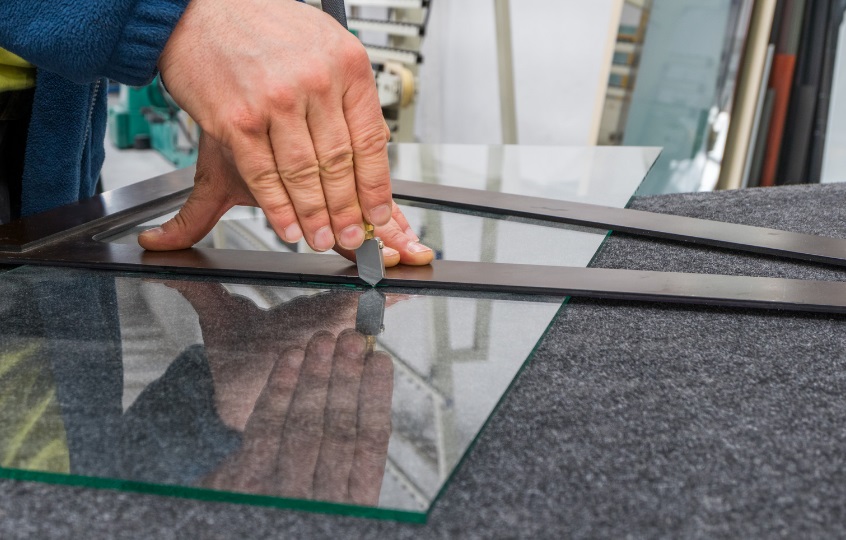In the Stirling area, glaziers provide specialized services essential to maintaining, repairing, and upgrading windows and glass installations for residential, commercial, and historic properties. Their work is vital in a city known for its rich architectural heritage and varied climate, where weather-resistant, energy-efficient, and aesthetically pleasing glass solutions are highly valued.
The Scope of a Glazier’s Work
Glaziers are skilled tradespeople who work with glass, primarily focusing on installation, repair, and replacement of windows, doors, and other glass fixtures. Glaziers Stirling, they handle tasks ranging from traditional single-glazing replacements in historic homes to fitting advanced double-glazing units that enhance energy efficiency. Their work often includes specialized tasks, such as custom glass installations in storefronts, glass staircases, shower enclosures, and even intricate stained glass restoration, which is a valued aspect of Stirling’s architectural history.
Window Repair and Replacement
For Stirling residents, the most common reason for hiring glaziers is to repair or replace windows that have become damaged or inefficient. Scotland’s climate, with frequent rainfall, high winds, and cold winters, puts a great deal of stress on glass installations, especially on older, single-pane windows that were not designed with modern thermal efficiency in mind. Glaziers provide a range of services to address these needs, from repairing cracked or broken glass panes to replacing the entire window unit with modern, double or triple glazing.
Double-glazing is a popular choice in Stirling, offering insulation against the cold and helping to reduce noise pollution—both important factors in a lively and sometimes bustling city. Glaziers can install these modern units to help improve a building’s thermal efficiency, leading to lower energy costs for residents. They also advise on which type of glass or glazing unit is most suitable for a particular property based on its age, location, and architectural style.
Historical Preservation Work
Stirling is known for its historical architecture, with iconic landmarks like Stirling Castle, the Church of the Holy Rude, and numerous 19th-century buildings that contribute to its character. Many of these structures have traditional, single-pane windows or unique stained-glass installations, requiring careful preservation work that only experienced glaziers can provide. Preservation of such windows requires a knowledge of both traditional glazing techniques and modern methods that help retain the appearance and integrity of older glass while enhancing its durability and energy efficiency.
Glaziers working in historical preservation may be involved in meticulous tasks such as replicating original window designs, sourcing or fabricating materials that match the old glass, and reinforcing these installations with minimally invasive methods. Some projects involve restoring stained glass, which can be intricate and fragile. For example, the delicate process of removing, repairing, and re-installing stained glass panels involves specific techniques to maintain the original aesthetic without compromising the glass’s historical value.

Customized Glass Solutions
Beyond standard window repair and replacement, glaziers in Stirling are often called upon for custom glass solutions that enhance both functionality and aesthetics. Many businesses in Stirling, especially those in retail and hospitality, rely on glaziers to design and install attractive storefront windows and glass partitions. These glass features not only improve the look of an establishment but also allow for better natural lighting, creating a welcoming atmosphere for customers.
In residential settings, glaziers are increasingly working with clients on bespoke projects such as glass balustrades, custom mirrors, glass doors, and shower enclosures. Homeowners may also request frosted or decorative glass installations to improve privacy or add unique touches to their homes. These custom projects require the glazier to carefully measure and plan installations, often in collaboration with interior designers or architects.
Enhancing Energy Efficiency
With growing awareness of environmental issues, Stirling’s glaziers are also playing an important role in helping homes and businesses reduce their energy usage through improved glazing. They provide consultations on energy-efficient glass options and recommend insulated glass units (IGUs) designed to minimize heat loss. These units, often used in double or triple-glazed windows, help buildings maintain consistent indoor temperatures, thereby reducing the need for heating and cooling systems. This is particularly relevant in Stirling, where energy conservation efforts are being promoted in line with Scotland’s sustainability goals.
Safety and Security
A significant aspect of glazier work also involves the installation of safety and security glass. Many residential and commercial clients in Stirling seek reinforced glass solutions, such as laminated or tempered glass, to increase security. Laminated glass is designed to hold together even when shattered, making it an ideal choice for storefronts and entryways, where additional security is needed. Tempered glass, which is tougher and shatters into safer, smaller pieces, is another option frequently installed by glaziers in areas where safety is a priority.
Conclusion
The work of glaziers in Stirling encompasses a broad array of services, all of which contribute to the preservation, functionality, and efficiency of buildings throughout the region. By addressing the practical needs of window repairs, supporting historical preservation efforts, and helping homes and businesses adopt energy-efficient glass solutions, glaziers are integral to Stirling’s unique blend of tradition and modernization. With a combination of technical skill and artistry, Stirling’s glaziers continue to adapt their services to meet the evolving needs of this historic yet forward-looking area.

